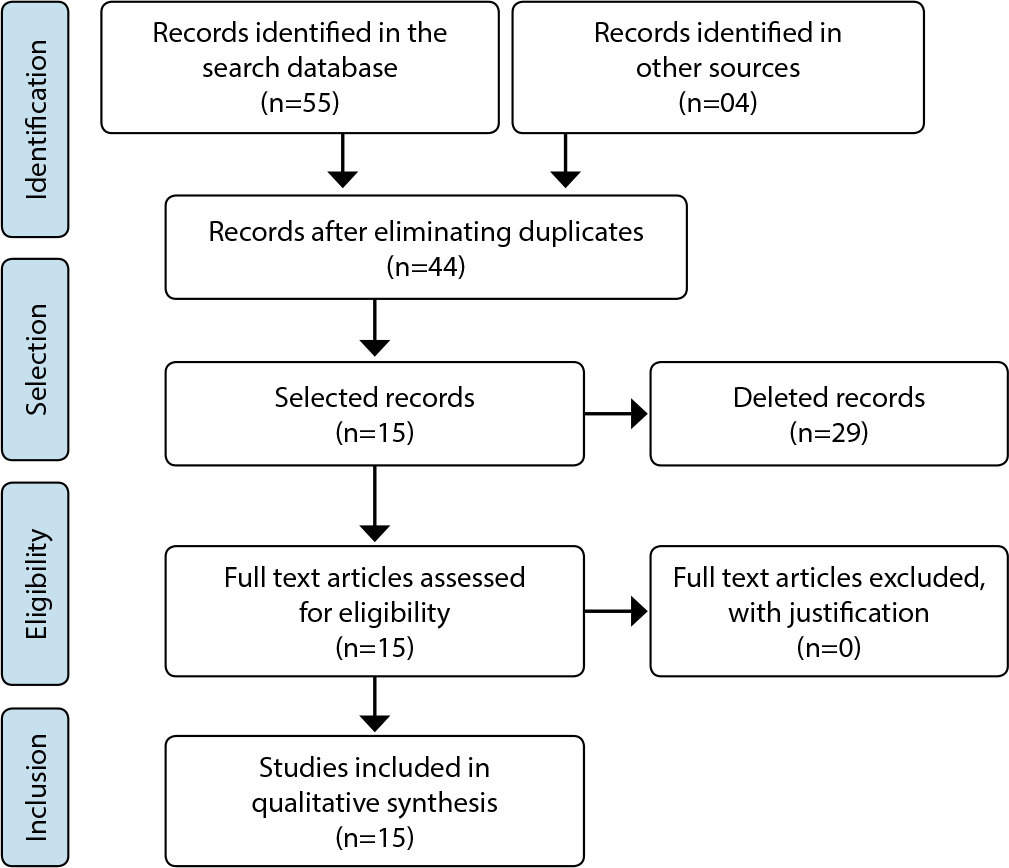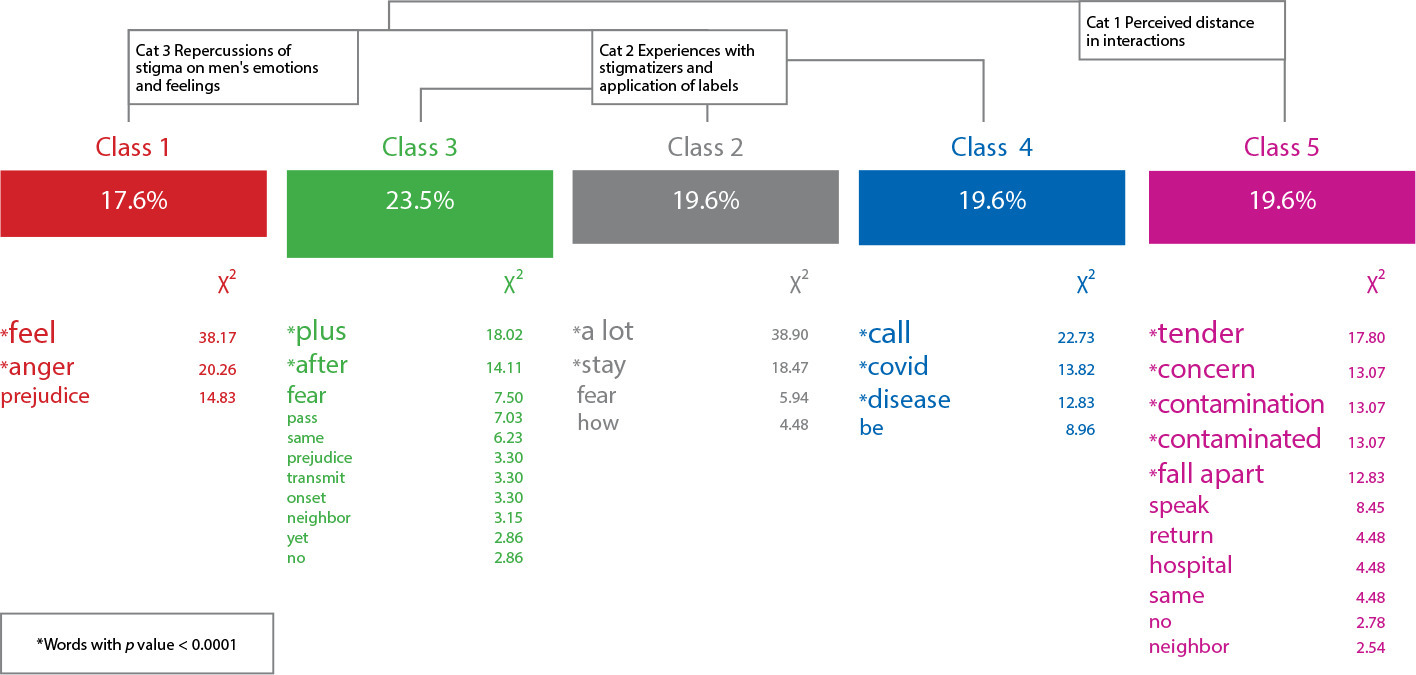-
11-25-2022
Populações vulnerabilizadas no contexto da pandemia e crises sanitárias
Revista Brasileira de Enfermagem. 2022;75:e75Suppl201
Abstract
Populações vulnerabilizadas no contexto da pandemia e crises sanitárias
Revista Brasileira de Enfermagem. 2022;75:e75Suppl201
DOI 10.1590/0034-7167.202275Suppl201pt
Views0As condições e os modos de vida da população determinam o processo de saúde e adoecimento de forma diferenciada entre os diversos grupos populacionais. As desigualdades na saúde vêm adquirindo relevância ainda maior na produção de diferentes perfis de doença, em função de recentes e surpreendentes acontecimentos mundiais, como divergências étnico-raciais, religiosas, territoriais, identidade de […]See more -
11-25-2022
Reflexões sobre a ciência em enfermagem gerontológica: possibilidades para o seu caminhar
Revista Brasileira de Enfermagem. 2022;75:e75Suppl401
Abstract
Reflexões sobre a ciência em enfermagem gerontológica: possibilidades para o seu caminhar
Revista Brasileira de Enfermagem. 2022;75:e75Suppl401
DOI 10.1590/0034-7167.202275Suppl401pt
Views0O conhecimento científico em enfermagem gerontológica brasileiro tem seus primórdios há mais de 50 anos, especificamente em meados de 1970, alinhados ao movimento mundial de reconhecimento da complexidade do envelhecimento populacional e dos seus desafios na esfera social, cultural, política e de saúde pública. Desde então, a produção científica nesse campo guarda relação com a […]See more -
11-19-2022
Advanced Practice Nursing: Canadian Perspectives and Global Relevance
Revista Brasileira de Enfermagem. 2022;75(1):e750101
Abstract
Advanced Practice Nursing: Canadian Perspectives and Global Relevance
Revista Brasileira de Enfermagem. 2022;75(1):e750101
DOI 10.1590/0034-7167.2022750101
Views0In this editorial, Advanced Practice Nursing (APN) will be explored as a practice model that could be implemented to strengthen health care systems globally. Canadian perspectives and the evolution of APN in Canada will be used as an example to identify potential opportunities for the conceptualization and implementation of advanced practice nursing that is both […]See more -
11-19-2022
Enfermagem de Prática Avançada: Perspectivas Canadenses e Relevância Global
Revista Brasileira de Enfermagem. 2022;75(1):e750101
Abstract
Enfermagem de Prática Avançada: Perspectivas Canadenses e Relevância Global
Revista Brasileira de Enfermagem. 2022;75(1):e750101
DOI 10.1590/0034-7167.2022750101
Views0Neste editorial, a Enfermagem de Prática Avançada (EPA) será explorada como um modelo de prática que pode ser implementado para fortalecer os sistemas de saúde globalmente. As perspectivas canadenses e a evolução da EPA no Canadá serão usadas como um exemplo para identificar oportunidades potenciais para a conceituação e implementação da EPA que seja abrangente […]See more -
ORIGINAL ARTICLE11-19-2022
Factors associated with the perception of fear of COVID-19 in university students
Revista Brasileira de Enfermagem. 2022;75:e20210448
Abstract
ORIGINAL ARTICLEFactors associated with the perception of fear of COVID-19 in university students
Revista Brasileira de Enfermagem. 2022;75:e20210448
DOI 10.1590/0034-7167-2021-0448
Views0See moreABSTRACT
Objective:
to analyze the factors associated with the perception of fear of COVID-19 in Brazilian university students.
Methods:
this is an online, cross-sectional analytical study conducted at a Brazilian public university with 1,437 undergraduate students between September and November 2020. The Fear of COVID-19 Scale was used to measure the main construct. Data analysis was performed using Mann-Whitney U test, Cohen’s r test and multiple linear regression analysis.
Results:
factors associated with fear of COVID-19 in university students were the variables biological sex, perception of good sleep quality, many days of access to information, not complying with social distancing, reporting sufficient hours of sleep, not having a partner, guidance sexual non-heterosexual, being in the risk group for COVID-19 and tobacco consumption.
Conclusions:
the study findings can contribute to the discussion about the weaknesses that the university population is experiencing in this pandemic period.
-
REVIEW11-19-2022
Nursing care for bed bath in patients with COVID-19: an integrative review
Revista Brasileira de Enfermagem. 2022;75:e20200704
Abstract
REVIEWNursing care for bed bath in patients with COVID-19: an integrative review
Revista Brasileira de Enfermagem. 2022;75:e20200704
DOI 10.1590/0034-7167-2020-0704
Views0See moreABSTRACT
Objective:
to identify the main nursing care procedures for performing bed bath in patients with COVID-19.
Method:
an integrative literature review. Five stages were followed for this research: research question elaboration (identification of the problem), search of studies in literature, study assessment, data analysis, and presentation of review. To search for primary studies, the VHL and SciELO databases were selected.
Results:
initially, 55 publications were found. After reading and analyzing the abstracts, the sample consisted of 15 studies.
Conclusion:
patients with the new coronavirus have specific care to perform a bed bath, oral, intimate and skin hygiene. It is important that professionals use adequate personal protective equipment, perform humanized care, continuously observing patients’ vital signs to avoid occurrence of adverse events, promoting patient safety.

-
ORIGINAL ARTICLE11-19-2022
Stigma experienced by men diagnosed with COVID-19
Revista Brasileira de Enfermagem. 2022;75:e20210038
Abstract
ORIGINAL ARTICLEStigma experienced by men diagnosed with COVID-19
Revista Brasileira de Enfermagem. 2022;75:e20210038
DOI 10.1590/0034-7167-2021-0038
Views0See moreABSTRACT
Objective:
to analyze the stigma characteristics perceived in the experience of men who had COVID-19.
Method:
this qualitative study involved men living in Brazil, diagnosed with COVID-19, who answered semi-structured questions in an online form. Data were subjected to thematic and lexical analysis, interpreted in the light of the stigma theory.
Results:
92 men, adults, cisgender, heterosexual, of mixed race/color, belonging to middle class, living in the urban area, with higher education participated. The stigma characteristics evidenced were the occurrence of leave, perception of impolite treatment, use of labels and discrimination by co-workers, family members, neighbors and even healthcare professionals, with consequences for the psycho-emotional dimension.
Final considerations:
discrimination and exclusion derived from stigma surprised men marked by class and gender privileges, little used to being downgraded in interactions when compared to other groups.

-
ORIGINAL ARTICLE11-15-2022
Suffering and defense mechanisms: an analysis of the work of Primary Health Care nurses
Revista Brasileira de Enfermagem. 2022;75:e20200419
Abstract
ORIGINAL ARTICLESuffering and defense mechanisms: an analysis of the work of Primary Health Care nurses
Revista Brasileira de Enfermagem. 2022;75:e20200419
DOI 10.1590/0034-7167-2020-0419
Views0See moreABSTRACT
Objective:
To analyze the suffering and coping strategies of nurses working in Primary Health Care considering the psychodynamics of their work.
Methods:
Descriptive study with a qualitative approach, carried out with 11 nurses working in Primary Health Care. Data were collected through semi-structured interviews, systematized, and interpreted using Bardin’s content analysis method applied to recurrent themes.
Results:
The suffering factors related to work in Primary Health Care are difficulties with management, the fragile structure of the health support network, and conflicts with the users. Defensive strategies to minimize these difficulties are the support of hierarchical superiors, the empowerment of the community and users, and communication between team members.
Final considerations:
It is important that there be changes in the organization of this line of work to improve the workers’ health.
Search
Search in:
Nuvem de Tags
Enfermagem (930)Cuidados de Enfermagem (269)Atenção Primária à Saúde (239)Idoso (208)Educação em Enfermagem (151)Segurança do Paciente (150)Saúde Mental (145)Educação em Saúde (139)Estudos de Validação (131)Qualidade de Vida (104)Tecnologia Educacional (100)Promoção da Saúde (99)COVID-19 (91)Criança (91)Família (87)Enfermagem Pediátrica (86)Saúde do Trabalhador (86)Adolescente (85)Saúde Pública (82)Estudantes de Enfermagem (77)














